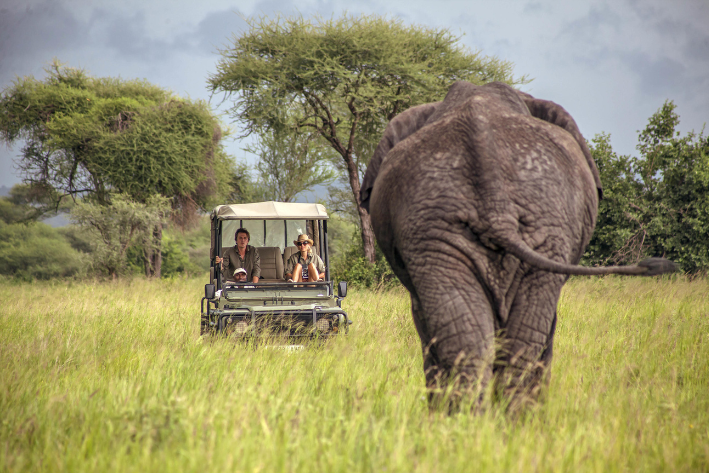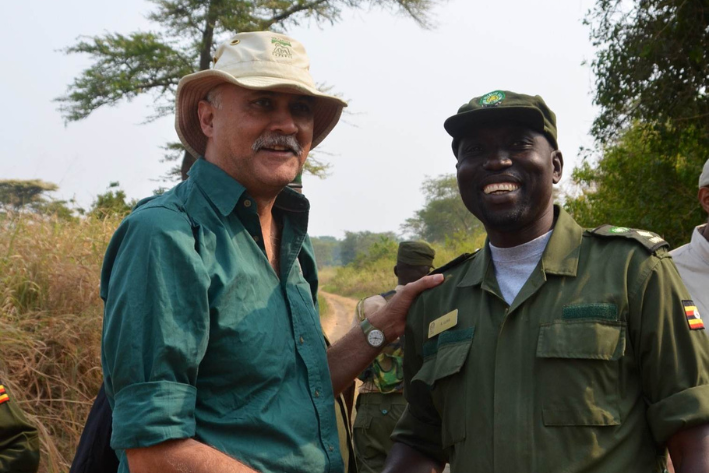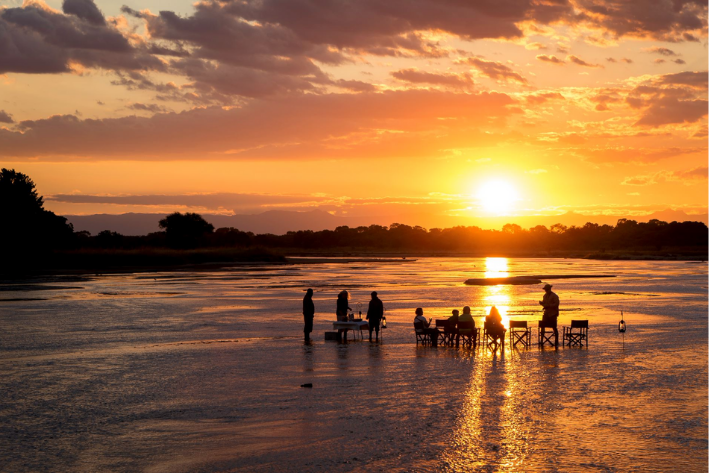We meet Fabia Bausch
Creating slow safari magic in northern Tanzania
Our “Introducing” series continues with a heartfelt chat to the dynamic Fabia Bausch, who with her partner Nicolas Negre is making an enormous difference to conservation and communities in the north of Tanzania thanks to their pioneering safari company..
Like all good tales, this one starts with a love story… Swiss businesswoman Fabia Bausch met her soul mate Nicolas Negre whilst on holiday in the Bahamas and later at a friend’s house party in Zurich the two embarked on an incredible journey that’s culminated in the establishment of a truly special safari brand – Chem Chem.
Fabia describes herself as a “rare species” because she’s 100% Swiss. “I grew up in a very beautiful place right on a lake with views of the alps which is where I developed my love for nature,” she says.
“I started travelling from a young age, staying for a year in the US when I was 15 and going on family holidays all over the world. My great-grandmother had travelled widely and had lived in Sumatra and South Africa’s Cape and this love of exploring was passed down. Family dinners were always exotic, speaking five or six languages around the table. Being multicultural was in my genes, I suppose, and I always celebrated diversity,” Fabia explains.
“I chose a career in banking because I didn’t know what I wanted to do as a young person,” she says. “I learned a lot about taking responsibility, working as part of a team, making quick decisions and understanding my true values. I spent 12 years in banking, until in 2005 I decided to move on because I couldn’t see myself spending a life in the finance industry, becoming a slave to money.”
That’s when Fabia’s life changed dramatically. “At a friend’s party I met Nicolas, who is French,” she explains. “At that time was in a similar position to me, wondering what he wanted to do with his life. He had been a professional hunter in Tanzania but had realised that this was not his life’s calling. He had the idea of building a safari camp outside of a national park there where guests could get really close to nature, having the freedom to explore while helping anti-poaching efforts. It sounded perfect, so we started scouting in Tanzania, which Nicolas knew very well and which I absolutely loved.”
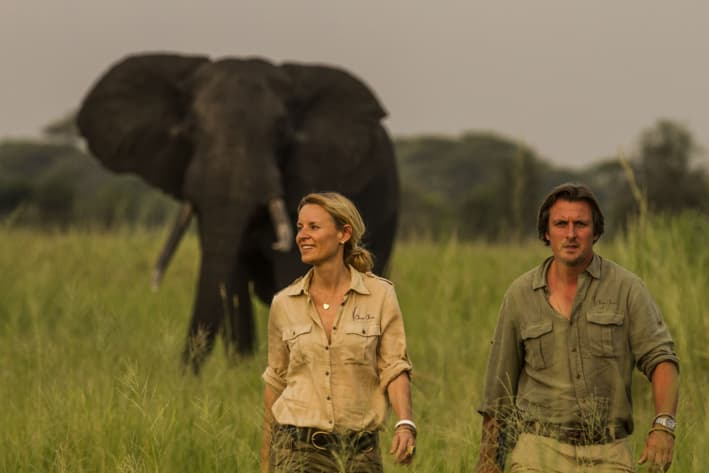
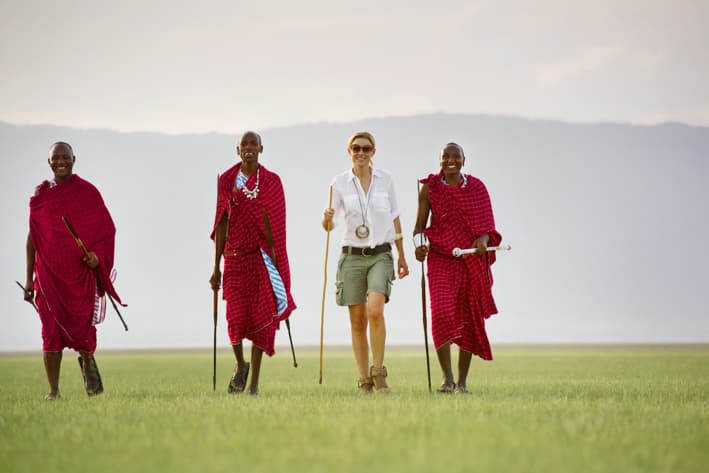
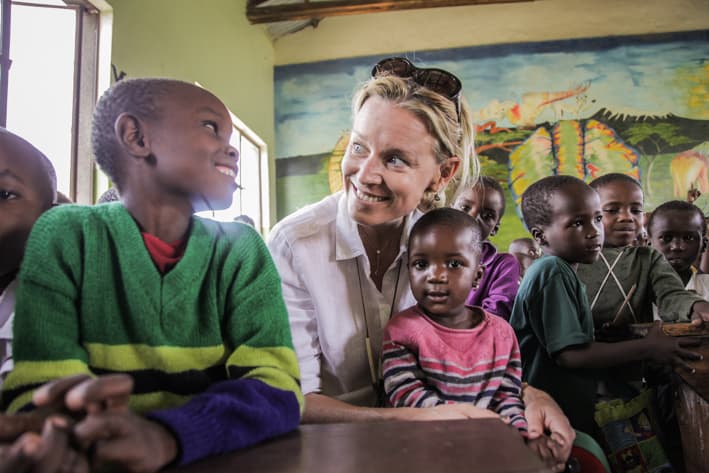
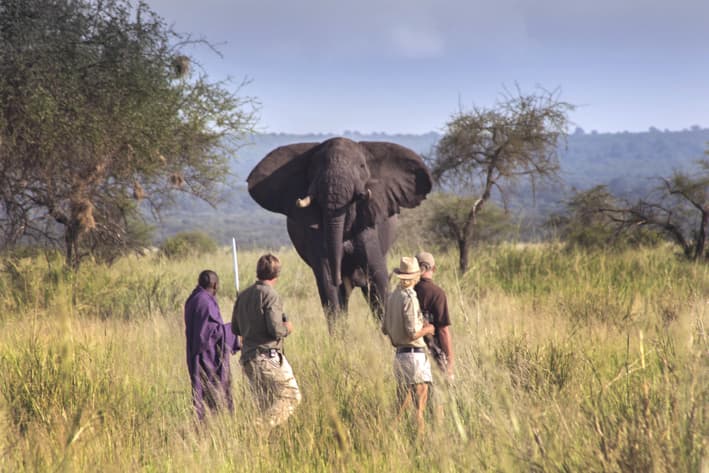
Fabia first came to Africa in 1998 where she fell in love with the African wilderness. “I love hiking and found Africa’s wide open spaces so special when compared to say, South America and Asia. What makes it special is the biodiversity and range of wildlife species. It’s the cream on top of a wonderful dessert. So having the opportunity to return to Africa and explore with Nicolas was wonderful,” she says.
In 2007 Fabia and Nicolas found the location where Chem Chem Lodge now stands and the rest, as they say, is history. “It’s a 4,000ha former hunting block on the edge of Lake Manyara that was covered in thousands of cattle and illegal settlements, but we had a vision that this was the place. It was never a question ‘why’ do it but more of ‘how’ we do it,” Fabia says.
Tanzania’s tourism concessions are still categorised as hunting blocks by the Tanzanian government, even though no hunting takes place on the majority of them. “We don’t do any hunting, even though the land is considered a hunting block and we are supposed to meet an annual quota,” Fabia says. “It’s not hampered us, though, as our lease has just been renewed for another 12 years, till 2034, which is encouraging.”
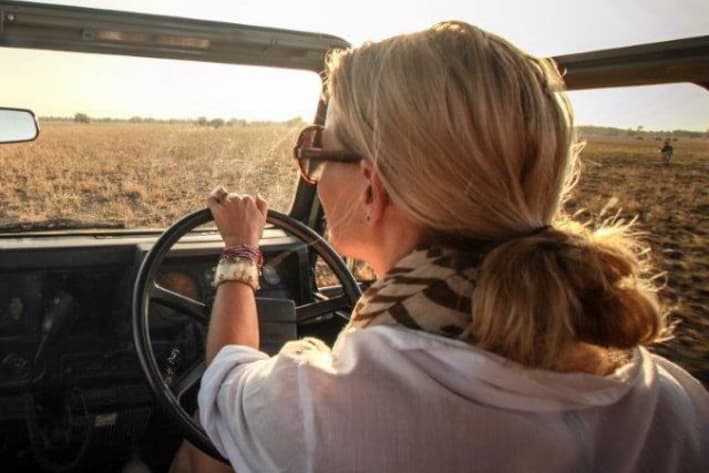
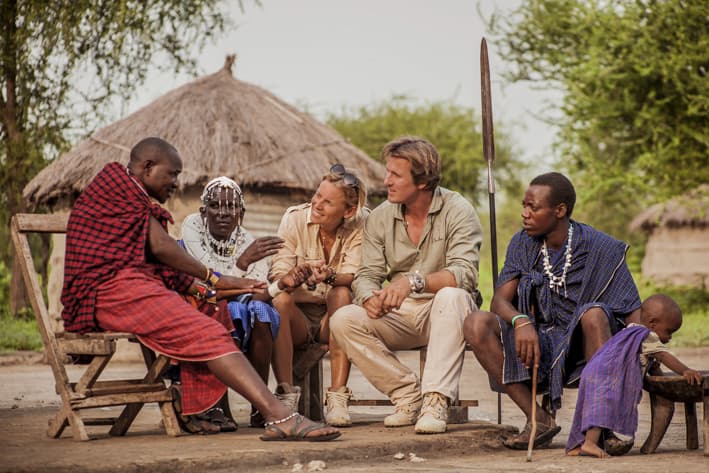
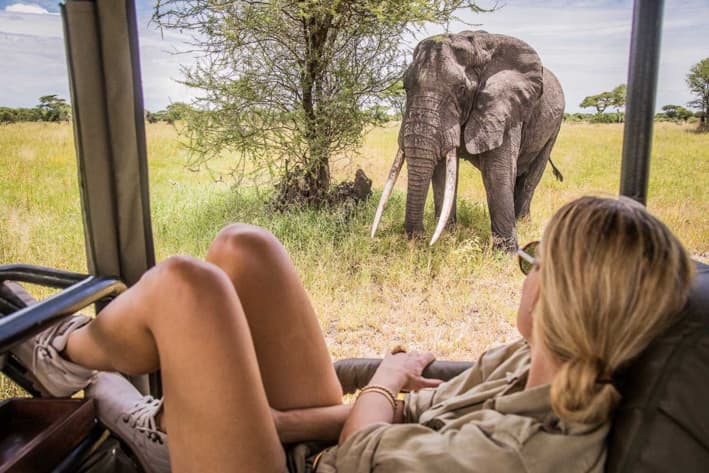
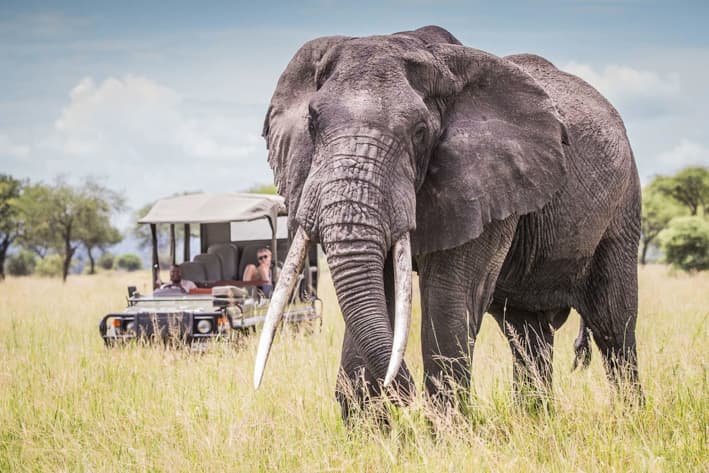
It’s a high point on a journey that’s been fraught with challenges.
“There were so many hurdles in our way, from being French-speaking to the 2008 financial crisis,” says Fabia. “We eventually opened Chem Chem Lodge in 2011, with just Nicolas and I and 40 or so staff. Today we have 200 staff and two more camps – Forest Chem Chem and Little Chem Chem. We just kept believing in our vision and refused to compromise.”
Fabia loves her team at Chem Chem. “It’s a privilege to work with them, see them grow and expand their horizons,” she says. “The majority of the Chem Chem team come from our local villages. With three camps we are now making a direct positive impact in our communities. We create English courses for our staff to help them improve their language skills and training is ongoing to help create confidence.”
Chem Chem (pronounced with a soft “ch” as in “church”) comes from the Swahili word for a spring. The Chem Chem ethos of a slow safari, where guests are at liberty to create their own itineraries and timetables, taking the time to unpack, relax and really immerse themselves in where they are, was unheard of at that time.
When Fabia came up with the concept of a slow safari in 2011 the trade rejected it outright. But it’s taken off and has become something of a trend now.
“I’ve never understood why someone pays top dollar to go on a safari to pack and unpack every single day,” says Fabia. “Why do you want to rush through your holiday? I always preferred to spend more time in one place. It’s not right that you don’t get to enjoy the simple luxury of having coffee served to you in the morning because you feel you have to get up at 5am to go on a game drive. I think the safari industry puts too much pressure on guests and makes them feel guilty if they want to sleep in,” she adds.
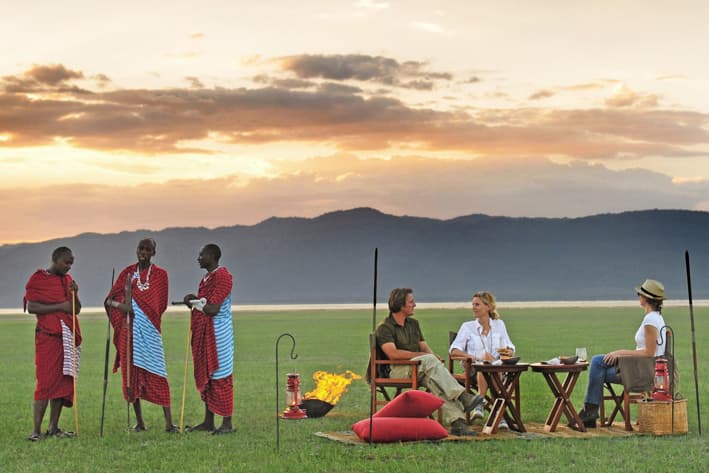
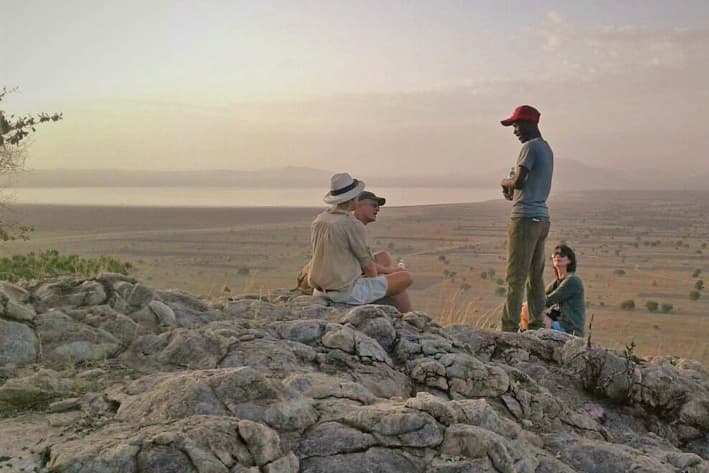
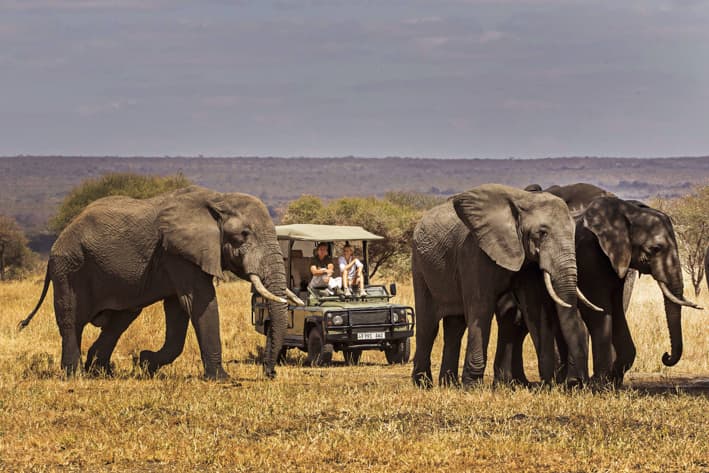
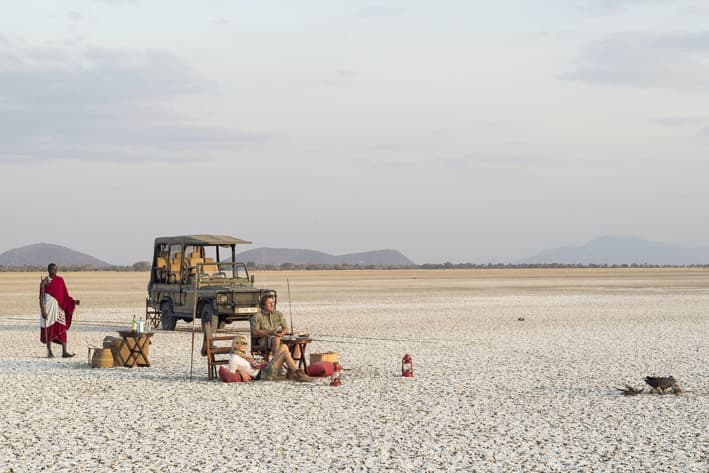
“A safari camp is not a boarding school. It’s not rehab,” laughs Fabia. “You’re not paying all that money each night to be told what to do and when to do it and find it impossible to get a coffee if you decide to stay in camp. At Chem Chem the guests do what they want to do. They are not forced to do what their partner wants to do. Or what we want them to do. We give them the time they are paying for and adapt to their needs.”
As Fabia says, when they are staying with you, the guests are on holiday. “It’s a word that’s derived from “holy day”. Their time is indeed holy. And precious. We can’t give our guests back the time they spend with us but we can make sure they spend it in the best way possible,” Fabia says wisely.
“There is nothing wrong with the traditional way of doing a safari, it’s just not how we grew up and what we wanted to be. For example, we love to eat well, and have moved away from things like high tea and soup for starters at dinner. We also don’t think you have to sit in an open safari vehicle for eight hours a day to have a great safari. So we wanted to create a different Tanzanian safari experience and think out of the box.”
Fabia and Nicolas wanted to create something more at Chem Chem – experiences that would set them apart and make people want to visit them not just to see the Big Five but to have a more holistic safari.
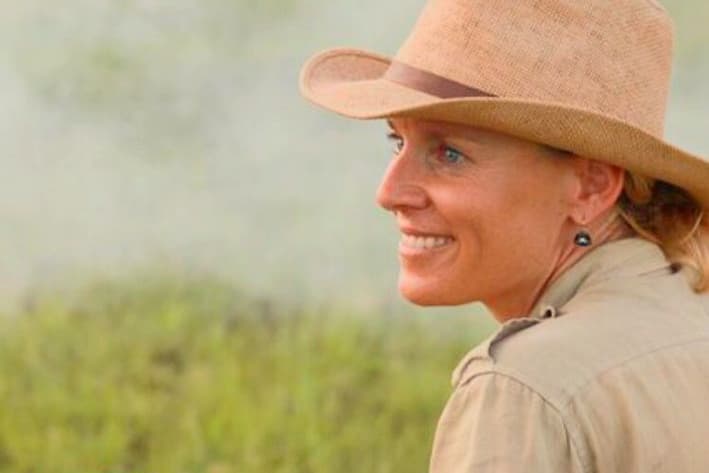
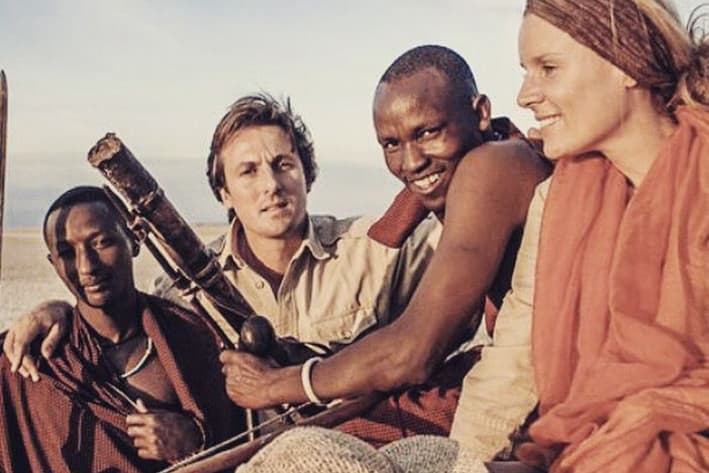
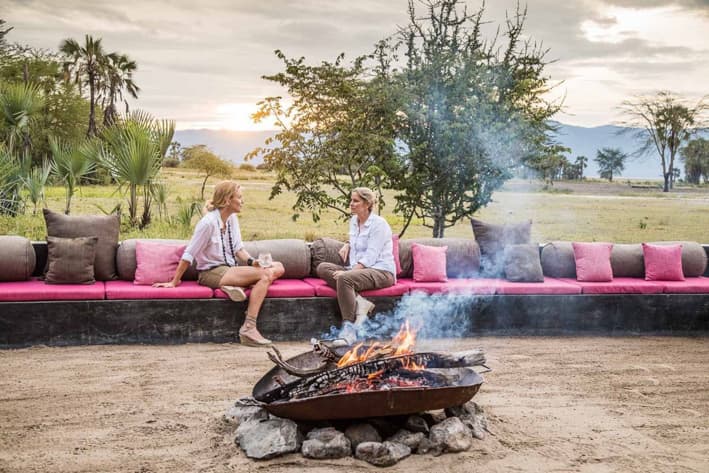
In 2013 Fabia and Nicolas expanded their operation and got the Little Chem Chem concession which is renowned for its big tusker elephants. It’s a 16,000ha swathe of land that’s become a critically important corridor which, together with the land that Chem Chem Lodge sits on and traverses, forms the Chem Chem-Burunge Wildlife Management Area (WMA) that links Manyara National Park with Tarangire National Park.
Known as the Kwakuchinja Corridor, the presence of Chem Chem and the establishment of the Chem Chem-Burunge WMA has stimulated wildlife recovery and movement between Tarangire and Manyara and has helped to reduce poaching significantly.
“By 2018 elephants had returned to the area. In November 2021 elephants finally returned to Manyara for the first time in more than a decade. It’s an enormous achievement in a relatively short space of time. The last 16 years have been hard work but our passion has pulled us through and we are seeing the results now,” says Fabia.
WMAs have made a huge difference to the Tanzanian conservation landscape. They were created by the Tanzanian government at the start of 2000 with the idea of forming buffer zones which were formerly hunting concessions so that local people could start to benefit from their proximity to national parks and the growing tourism industry.
“Working with the communities has been hugely rewarding,” says Fabia. “We spent the first few years just listening to their concerns and the challenges they were facing. Cattle are a major part of their culture so it was a huge issue to get them to move them from land that was now set aside for conservation,” she adds.
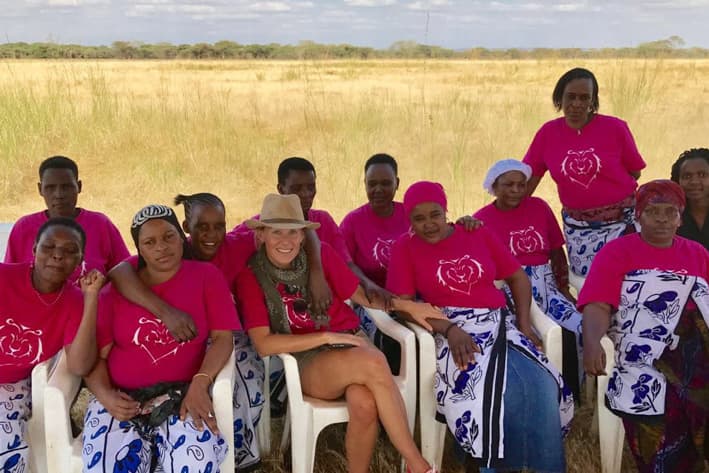
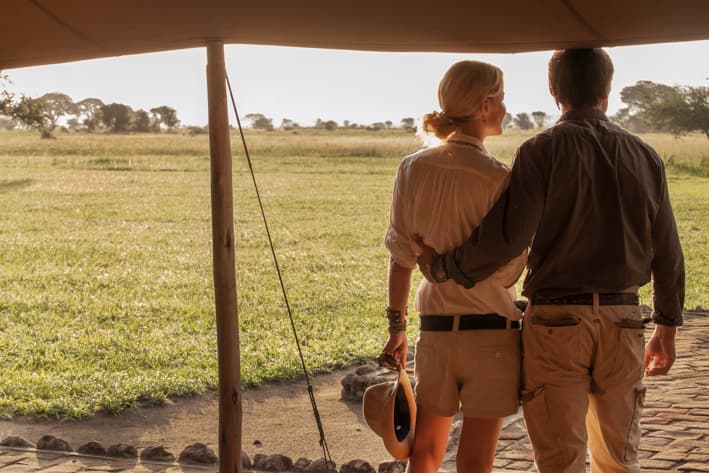
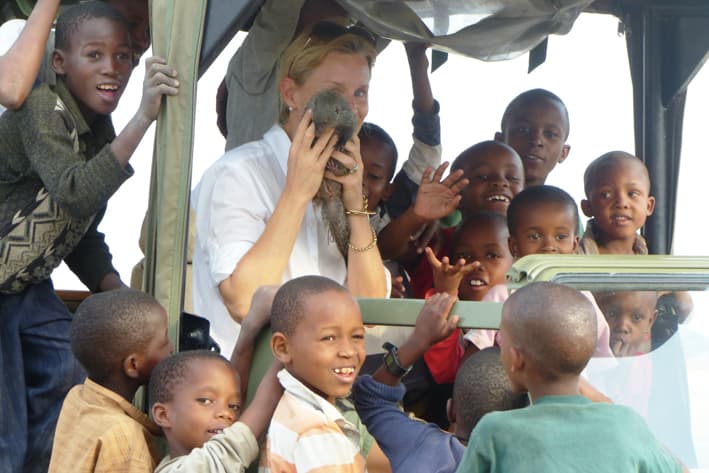
”We worked hard to find solutions, and build up trust, but it’s an ongoing process, especially when we are faced with drought situations. Poaching is also an issue, of course, but again one we are actively involved in combatting. It took us 10 years to gain the trust of the local communities, but it’s been worth the time and effort we put in.
“We formed the Chem Chem Association as an NGO to help power conservation by empowering communities, creating outreach and education programmes that are firmly rooted in participation and encourage shared responsibility, offering incentives for success. We’re focusing on the empowerment of local women at the moment,” says Fabia.
“There are 10 villages that we partner with through the WMA, with a population of between 50,000 and 60,000 people, all of whom depend on the corridor and the surrounding land. It’s a challenging environment with poor soil, very little rain, wedged between two alkaline lakes with a lack of good water. So everything we focus on is designed to overcome these challenges.”
The Chem Chem Association’s anti-poaching unit is working very well with the Tanzanian Government’s conservation officers and in spite of COVID19 and the lack of tourism revenue, the conservation team has managed to stay on top of the poaching situation, keeping it to an absolute minimum.
“We have a great relationship with our regional and district government authorities with a strong, open dialogue with them. We have an annual soccer tournament called “Kick for Wildlife” in which all of our villages and local people play soccer against each other over a six-week period. It helps to cement relationships and form strong bonds,” says Fabia.
So has Fabia’s and Nicolas’s love story and love affair with Africa turned out the way Hollywood often portrays it? Fabia says that while the idea of starting a safari company may sound romantic, the reality most certainly isn’t. Far from it, in fact.
“You have the enormous responsibility of 200 employees, 10 villages that rely on you, the conservation of wildlife that pivots on what you do, it’s hard work,” she says. But the guests that come here should never feel that pressure. They should be diving into a bubble and able to forget the challenges of every day life, where they can let their dreams grow and just ‘breathe’,” Fabia says.
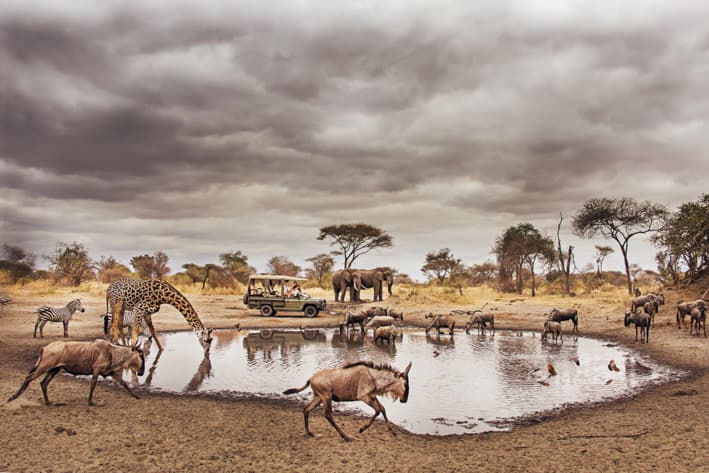
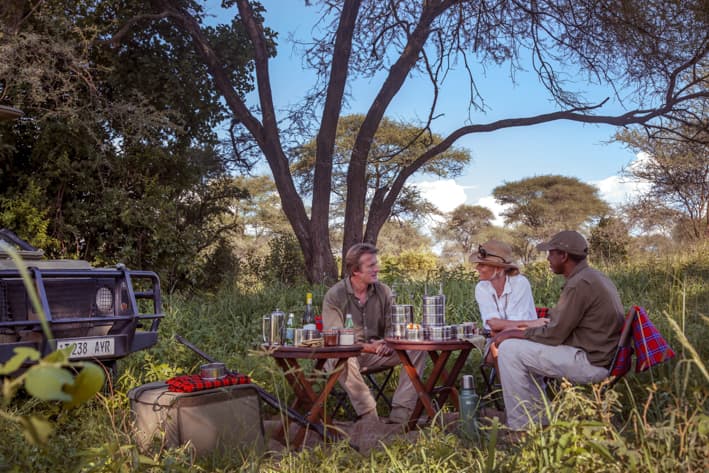
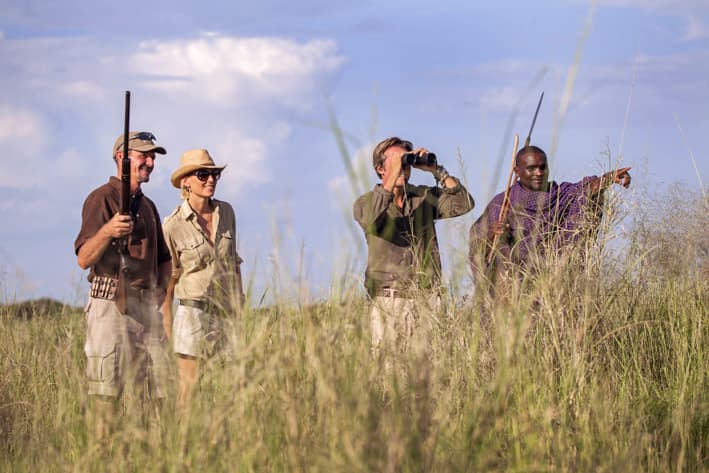
“Africa and especially where we are, with our strong connection to the Rift Valley and its special energy, is magical. But it’s much more than just wildlife and we take pride in helping our guests to connect with Africa on a different, higher level, getting away from humanity and just appreciating where they are.
“People underestimate a safari by focusing on one small part of it – seeing wildlife. For me that represents just 10% of what a safari is all about, the other 90% is equally, if not more mind-blowing. To see the animals is wonderful, but there’s so much more. For example, the silence is phenomenal. Just sitting and watching how life unfolds silently around you in these vast landscapes is amazing.”
Fabia believes the travel industry needs to stand up against the commoditisation of vacations in Africa and instead make efforts to educate the end user on the benefits of a safari and what it means to go on safari.
“A safari allows you to eat the best food, the best cocktails in beautiful settings while at the same time everybody involved in your safari benefits from it. People think a safari is expensive but there’s a lack of understanding in how we price our safaris and that it’s not cheap to do what we do,” she says.
Find out what Stanley Safaris founder Shaun Stanley thought of Chem Chem on his recent tour of Tanzania in his blog, here. And feel free to get in touch to chat about including Chem Chem’s amazing camps in your next safari itinerary

